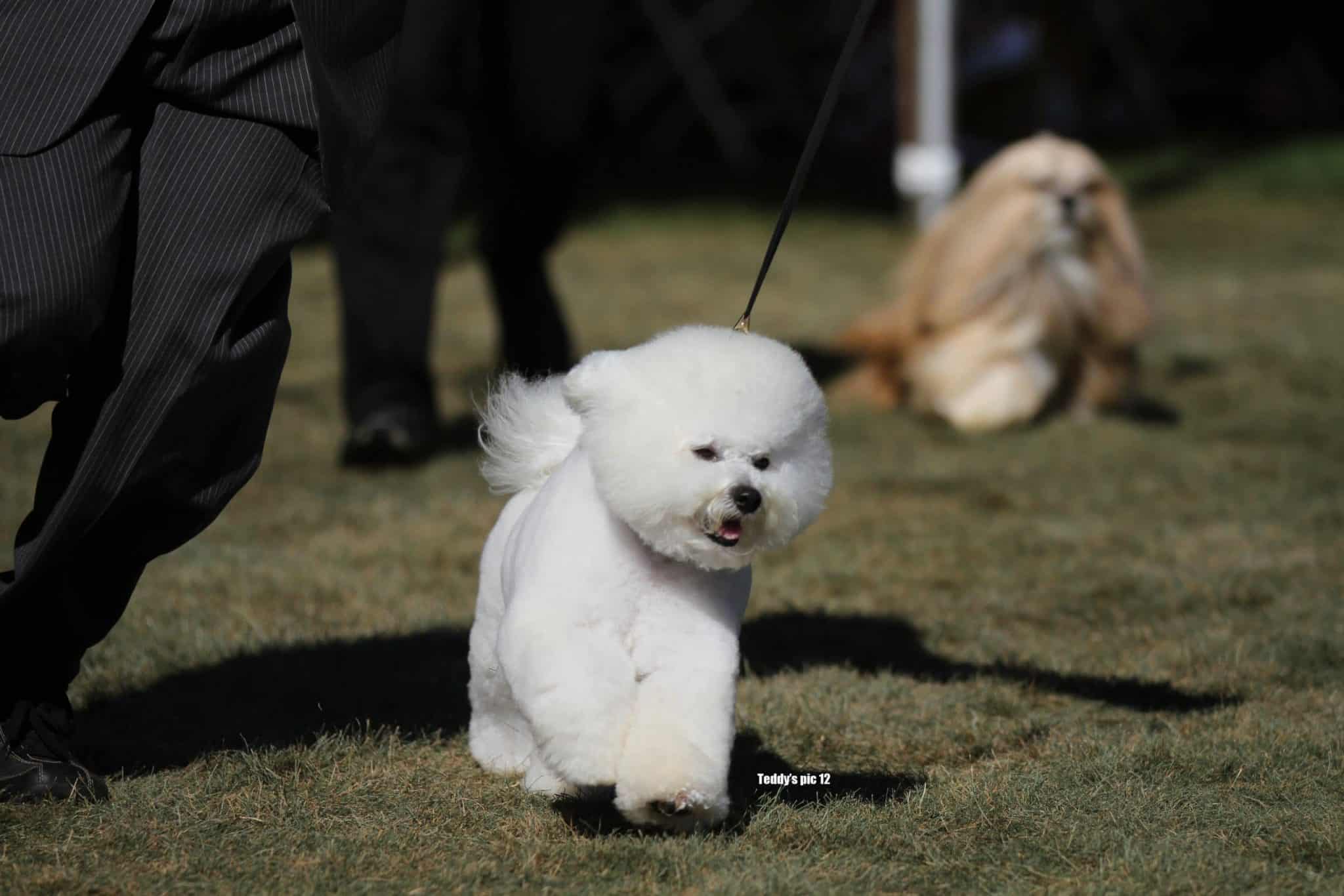Non-Sporting Group: Perfect for New Exhibitors. It is the most diverse, and this makes it a great Group for beginners in the sport of dogs.
APPRECIATE BREED DIFFERENCES
There is a wealth of information available from outside your own breed. I find it interesting that appreciation for other breeds is gained by familiarity. My original breed is Bulldogs. When I started in the sport, I ignorantly had little respect for many of the smaller breeds and, particularly, the coated breeds. Fortunately, I was living in California at that time and participated in the benched shows at the Cow Palace. Being forced to spend the entire days at the show provided the opportunity to talk to others about their breeds. These personal discussions with others in the Non-Sporting Group broadened my horizons through exposure. This experience was useful not only for my interest in my own breed, but also for others within the Group. I learned that the Poodle is an efficient water retriever. The Lhasa’s history as a sentinel accounts for his being chary of strangers. Schipperkes were ratters on river barges and their collars were showcases for cobblers’ skill and expertise in leatherwork.
LISTEN AND LEARN
For new exhibitors it is wise to listen to opinions from other breeders rather than only those within your own breed. Of course, your breed has experts with excellent advice, but others also have information that can be helpful. Each breed has something unique and interesting to offer if you take the opportunity to speak with their devotees. Who can better prevent tear stains than a Bichon breeder? Who knows scissors, clippers, and combs better than Poodle groomers and others with coated breeds? Many breeders and handlers are happy to discuss their breeds and share helpful advice—if you catch them when they have free time. There is much to be learned by watching other breeds exhibited by professionals. Gaiting speeds, presentation techniques, and stacking may be different for your specific breed, but some of this information can be used effectively.
JOIN A CLUB
You are not comfortable approaching strangers with another breed? Join an All-Breed or Group club. This is a perfect opportunity to meet others with like interests. Don’t just join, participate! Attend meetings, work on a committee, and work at your shows. Clubs can be a great place to learn, and all clubs can use new members. Our society is often separated by social strata, but the sport of dogs crosses all barriers. Race, education, and income mean little regarding dogs. You will have opportunities to learn from others with years of experience and, frequently, make lifelong friends.
KNOW THE RULES
I have often observed that “this is the only sport where the players don’t know the rules!” Yes, the rules are somewhat complex, but it is worth the time to learn them An occasional review of Rules Applying to Dog Shows is certainly worthwhile. One rule that can cause problems is found in Chapter 6, Section 7. This section points out that the club can make additional regulations or rules for their show, and print them in the premium list, and violations of these rules will be enforced the same as rules and regulations of The American Kennel Club. This may seem innocuous, but failure to read and comply with the “Attention Exhibitors” section could ultimately result in an event hearing, fines or suspension from AKC events.
HAVE FUN!
This sport is fun! Enjoy showing your dog and the comradery with others who do as well. Unfortunately, some of the first things new exhibitors hears is that the sport is terrible: Only handlers win; judges are crooked; the show is “fixed”; and other derogatory comments about all areas of the sport. However, you will see these naysayers come back, show after show and year after year. It seems that some people actually enjoy complaining! Keep a positive attitude and enjoy the education, the people, and the activities with your dog.









